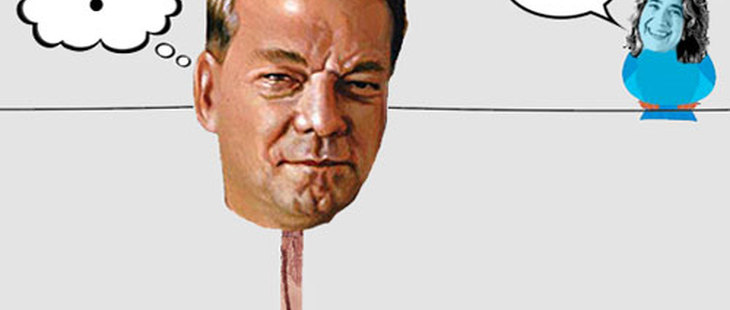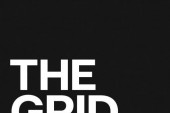

My faith that someone, somewhere, must understand how journalism should work online was shaken last week when Julie Moos drove Jim Romenesko out of his job by questioning his competence and possibly his integrity, first in private, then in public.
To grasp the enormity of the idiocy, you’ll need some introductions. Julie Moos is the director of Poynter Online; an organization that exists to help, in the words of its stated mission, “journalists do their jobs and to serve their communities.” Jim Romenesko is the original news aggregator and has been summarizing and linking stories on his blog since 1999.
It came to Moos’ attention last week that Romenesko sometimes used words or phrases from the stories he was linking to without putting them in quotation marks. When she confronted him about it, he told her he’d been doing it this way for a dozen years, and didn’t see anything wrong with it. She did. He gave his notice. Moos then felt it was a serious enough issue to blog about, which Romensko took as a public shaming and rescinded his notice and left immediately.
Being a media fixture for that long meant that this would raise some sort of a stink or other. Journalists from all over wrote in support of Romenesko, saying they’d never had a problem with his use of their material. Here’s an example of what Romenesko and others who wrote on his blog were doing:
Original story:
It’s a 21st-century update to the old “radio row,” which let talk-show hosts broadcast from the White House, with West Wing officials going from microphone to microphone during drive-time shows
Aggregating summary:
Mike Allen called it a 21st-century update to the old “radio row,” in which talk-showhosts broadcast from the White House with administration officials “going from microphone to microphone during drive-time shows.”
If this sort of thing were done in a news story, it would be plagiarism. And in our cut-and-paste world, you could make the argument that it’s more important than ever to draw solid lines around what is and what isn’t original work.
But Romenesko wasn’t writing news stories. He and his crew were writing tiny summaries with the express purpose of pointing people to the original story. The entire point of each bit of his writing was attribution, with links directly to the stories he was referring to.
Links have been with us for a while now, and yet they still haven’t worked themselves into journalism’s mainstream. Newspapers’ online stories almost always drop the ball on the added value – both to their readers and to themselves – of linking to original documents, other stories in their paper related to the topic at hand, little proprietary bios of newsworthy or historical figures named in a story. And now, we see, we haven’t even figured out their punctuational value. Links are quotes. By refusing to accept that, they’re doing the same thing as the New Yorker with its archaic diacritics. At least those are charming. Poynter’s just being obtuse, and chasing their obtuseness with a shot of self-righteousness.
Justin Peters, writing in the Columbia Journalism Review, defended Poynter against Romenesko’s supporters, saying “it is odd to criticize a journalism ethics institute for caring too much about journalism ethics.” But this attribution nonsense is to journalistic ethics what “hopefully” is to grammar. Sure, once, it was an adverb meaning to do something in a hopeful manner. But now it means “If I’m lucky,” or “I hope”. Language changes, and so does journalism. An ethic is only meaningful if it is a bulwark against wrong and harmful practice. Attribution rules in traditional forms of journalism exist to prevent writers from claiming other people’s words as their own. An aggregation is not a traditional piece of journalism. When done ethically, as Romenesko did, and as Huffington Post often does not, it is, in itself, an attribution.
Speaking of his own work several years ago as an aggregator for Slate, Peters wrote in that same CJR piece that “I was supposed to do what I could to bring my own insight and descriptive powers to bear on the material I had to work with. That’s the value add, as they say.” Odd that he doesn’t understand where the value is actually added in aggregation. Descriptive powers are fine, but it’s really about the filter. People went to Romenesko because they trusted him to filter through the mass of news out there and bring them what they’d find most useful and interesting. He built up this trust over more than a decade. It’s the sort of trust we give the Globe or the Star, the BBC, the Guardian or the friend who always seems up on who’s gay or what’s really happening in the real estate market. As Clay Shirky has famously said, we do not suffer from information overload, we suffer from filter failure.
Shirky’s explained this axiom in many places, including CJR, back in 2008, where he told Russ Juskalian, “If you took the contents of an average Barnes and Noble, and you dumped it into the streets and said to someone, ‘You know what’s in there? There’s some works of Auden in there, there’s some Plato in there. Wade on in and you’ll find what you like.’ And if you wade on in, you know what you’d get? You’d get Chicken Soup for the Soul. Or, you’d get Love’s Tender Fear. You’d get all this junk. The reason we think that there’s not an information overload problem in a Barnes and Noble or a library is that we’re actually used to the cataloging system.”
Romenesko and ethical aggregators like him are providing one of the most important services there is in today’s media world, where news pops up all over the place, and is for the first time almost instantly accessible in its entirety by people who choose to devote large portions of their lives to scrolling through it. We need to be perfectly clear about what constitutes competence and ethical behaviour in this still burgeoning and much abused practice. The issues are about linking, and giving a taste of the story but not its substance, so that you actually drive traffic to the site that did the original work. Summarizing a story in its entirety in your own words is not ethical, even if you use quotation marks when quoting from the original. That is leeching, and it’s just what, oddly, Poynter has started doing in recent months on Moos’ watch.
I do hope we start figuring this stuff out soon.
__
Bert Archer is the Media Critic for the Toronto Standard.














